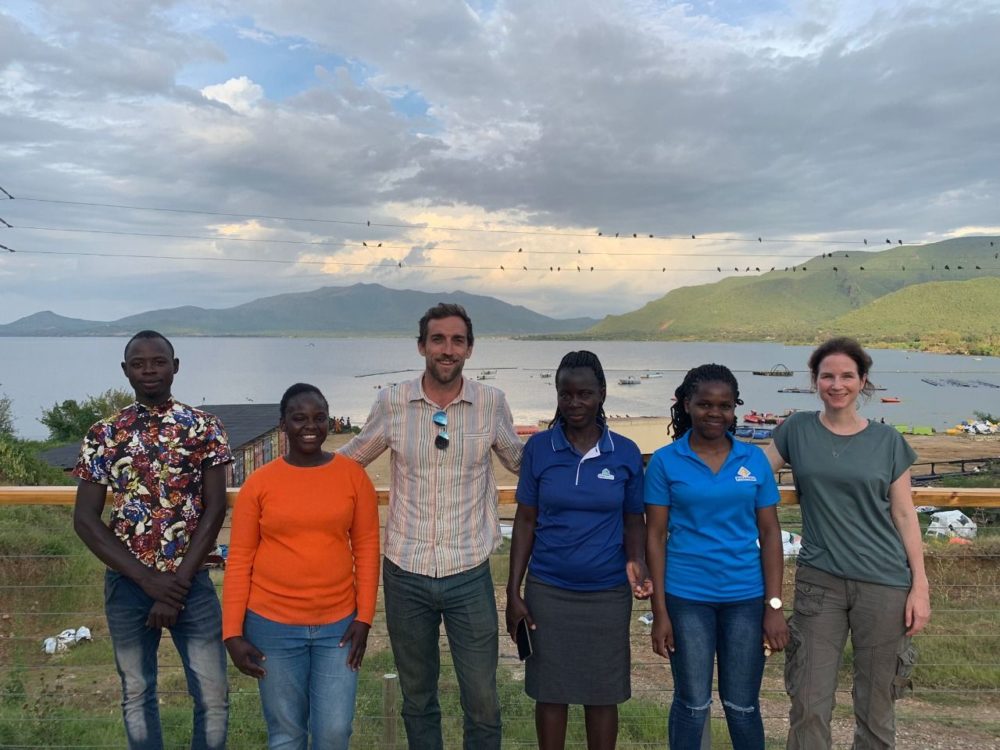For Ruth Bertens, execution support is critical if startups are to make an impact.
The typical route taken in the startup world is an entrepreneur, inspired to innovate by certain challenges, builds a startup and seeks investor backing to expand or sustain operations.
In Kenya, Pyramidia Ventures is taking an alternative route to address challenges in ag and climate. The agrifoodtech and climate-focused venture builder was founded by Ruth Bertens, a former McKinsey consultant and Africa lead at the education technology company EIDU, and Joseph Rehmann, better known as the founder of aquaculture startup Victory Farms.
“So basically, there are two themes we very much care about: climate change and inequality. And inequality starts really with food security; whether are you able to afford three nutritious meals a day,” Bertens tells AFN. Everything pointed to the agrifood sector.
Through her experience working in tech, Bertens kept coming back to the fact that startups need a lot of execution support. Incubators and accelerators are catalytic in supporting startups and contributing to their growth or success. But for Pyramidia, a startup’s success is 30% ideation and 70% execution.
So she and Rehmann landed on the venture studio model, launching Pyramidia in 2021.
“We’re not a fund. We’re not an incubator; we’re not an accelerator. We are really founders of companies,” she explains. “Our mission is to build an ecosystem of transformative food system innovators.”
What is a venture builder?
Pyramidia operates like a typical venture studio, ideating projects in-house or with ideas from university partners that they are unable to commercialize for the African continent.
The idea is then taken through a funnel where Pyramidia gauges its viability at every stage of the growth process. Pilot trials follow where a middle manager is brought on board to handle some operations of the startup. If these prove successful, it’s at this point Pyramidia will look to find a leader, a co-founder, to help grow the company from there and land external capital.
Eventually, the startup will spin-off to operate on its own but Pyramidia will still have some shares in it and will offer a lot of execution support after it lands its first tranche of financing.
This process, according to Pyramidia, decreases the time and capital needed to get a startup to the point where it is venture-backable.
“Founders spend like 50% to 80% of their time fundraising and it takes so much time. A single entrepreneur needs to fundraise, run a business and figure out HR, legal and finance. All these things are important for a venture to be backable, but they’re so difficult,” Bertens explains.
“And if the entrepreneur has to learn them from scratch it takes so much time. So we try to take the corporate admin services away for them so that they can just focus on proving the business model and scaling it.”
However, Bertens says the challenge with this model is the ‘switching cost’ of having to cater to different ventures at the same time and having to decide whether to dedicate talent to one venture or spread them across all ventures under Pyramidia.
The model is also new to some investors, and this translates into Pyramidia having to educate investors on how it works and the investment opportunity this route brings.
“Usually funds are used to investing in founders and the founders have 100% of the shares. It’s important for investors to see the venture studio as just another founder; that’s what it is, just a founder on steroids,” says Bertens.
Successful ventures
The firm aims to set up at least two ventures per year, justifying the relatively low number with the claim that Pyramidia Ventures stays involved with its startups longer than other venture-building studios.
So far, it has three ventures at different stages including Stable Foods, a climate-smart platform for smallholders that offers subscription-based irrigation as a service. The platform is also a one-stop shop for inputs and offtakers in addition to providing farmers with regenerative agriculture training.
The company recently secured a $600k seed round from Acumen Resilient Agriculture Fund and Mercy Corps Ventures. Pyramidia’s other ventures include Womega, a platform streamlining the fish supply chain and Afriprotein, a producer of animal and human protein alternatives.





